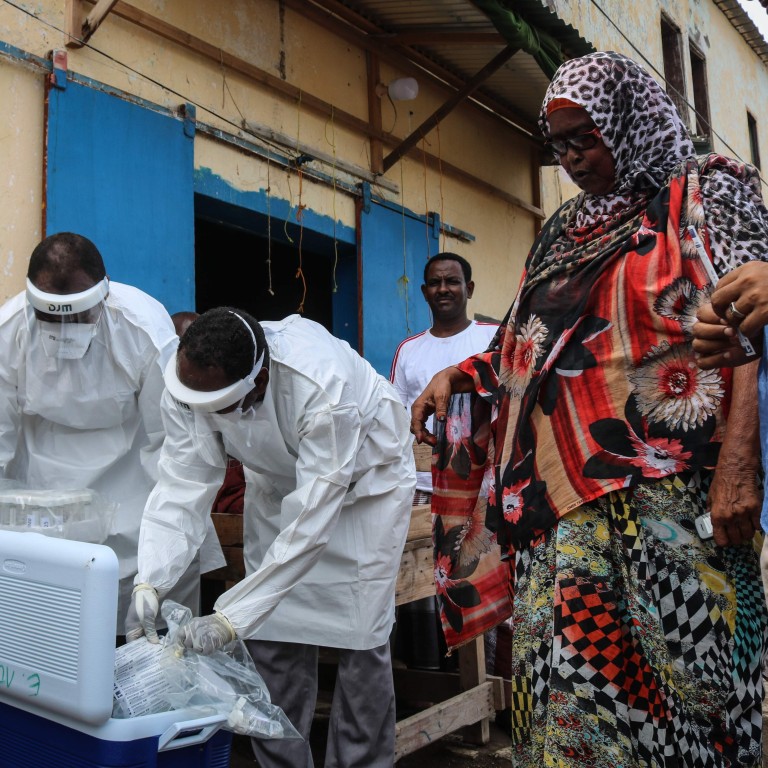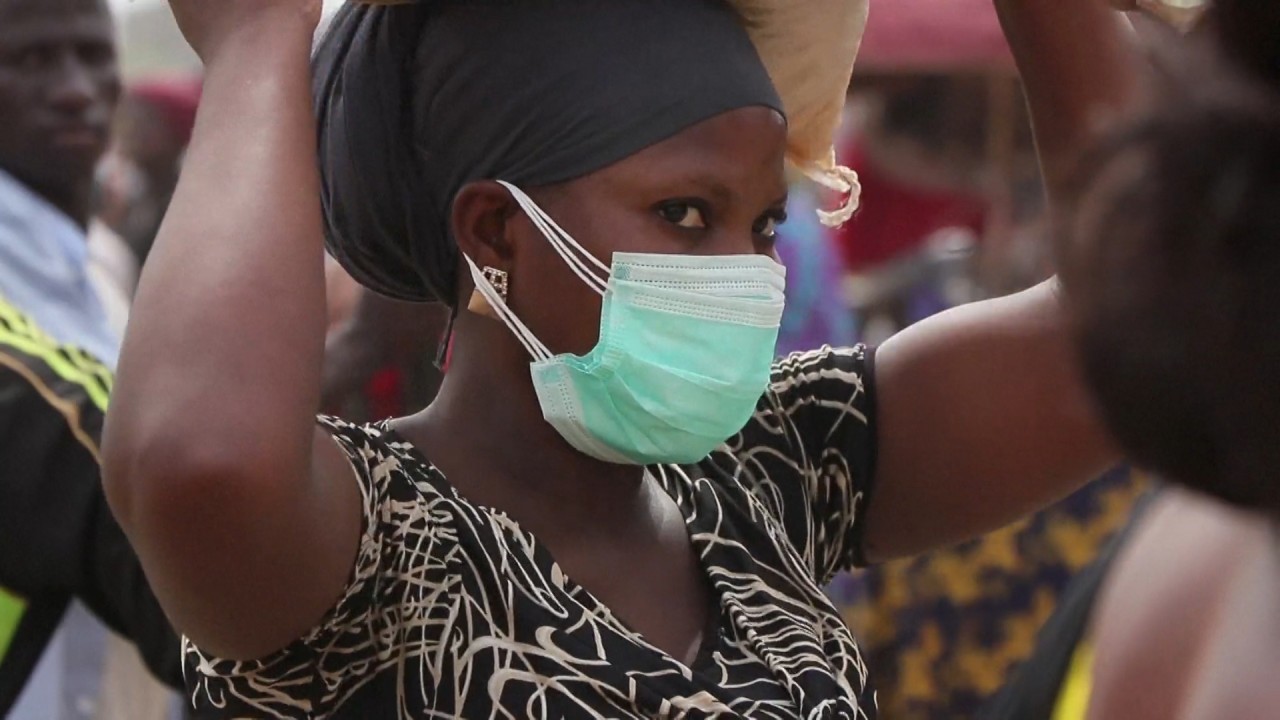
World Bank chief calls on China to cancel debt to coronavirus-hit poor countries
- Well-capitalised Chinese creditors are adding to woes in Africa and elsewhere, David Malpass says
- No light at the end of the debt tunnel, he says
Malpass said the wave of debt troubles in Africa and emerging economies elsewhere was the result of “the rapid growth of new official lenders, especially several of China’s well-capitalised creditors”.
“They have expanded their portfolios dramatically and are not fully participating in the debt rescheduling processes that were developed to soften previous waves of debt,” said Malpass, a former US Treasury official and staunch supporter of US President Donald Trump.

03:58
To starve or get sick: Africa’s lockdown dilemma amid the coronavirus pandemic
The G20 countries launched the DSSI in April, offering a debt payment moratorium between May 1 and end of the year to 73 low-income countries, mostly in Africa and some in Asia, hit by the coronavirus pandemic.
In addition, 43 countries have received about US$5 billion from the DSSI to fund social, health and economic measures to respond to the pandemic.
But Malpass said that “too many of the creditors are not participating in the initiative, leaving the debt relief too shallow to meet the fiscal needs of the inequality pandemic around us”.
He said that because the debt payments were deferred – not reduced – there was no light at the end of the debt tunnel.
“Given the depth of the pandemic, I believe we need to move with urgency to provide a meaningful reduction in the stock of debt for countries in debt distress,” Malpass said.
China is behind billion dollar debt restructure for Angola, analysts say
China is the biggest bilateral lender for most emerging economies.
Of the amount due from poor nations taking part in the G20 debt plan between May and December this year, 70 per cent, or US$7.17 billion, was to China. That amount is expected to rise to US$10.51 billion, or 74 per cent of the total, next year if the DSSI is extended.
The G7 countries have criticised China for classifying large state-owned, government-controlled financial institutions as commercial lenders and not as official bilateral creditors.
Those critics include Malpass, who said China Development Bank (CDB) needed to take part as an official bilateral lender for the DSSI to be effective.
He said also debt restructuring information had to be disclosed to avoid the secretive rescheduling that was under way in some countries, such as Angola and Laos.
This followed reports that China had agreed to a three-year debt moratorium for Angola, which included commercial debts from Bank of China and CDB.
China has argued that since CDB lends at commercial instead of concessional terms, the bank should be treated as a commercial lender. CDB’s lending to DSSI-eligible countries is heavily concentrated in Angola and Pakistan.
Coronavirus: Africa hopes it has seen the worst of Covid-19 as case numbers, death rates fall
China has told Angola that it is willing to reach an agreement on debt suspension under the DSSI.
In a phone call late last month, Chinese President Xi Jinping also told his Angolan counterpart, João Lourenço, that the Export-Import Bank of China had played an active part in Angola’s application for emergency financial aid from the IMF.
Other non-official Chinese creditors are in talks with Angola about reaching basic consensus on a debt restructuring plan. Angola holds about US$20 billion of Chinese loans, the highest amount of an African country.
Beijing said that since the G20’s debt freeze agreement was adopted in April, it had received more than 20 requests and reached agreements with more than 10 borrowers by the end of July, without specifying the recipients.
For its part, China has pushed for the World Bank to be included in the DSSI, a move that has so far been resisted by other World Bank/IMF members.
China has also suggested through central bank governor Yi Gang that the IMF should issue new Special Drawing Rights and allocate them to Covid-19 afflicted countries through existing financing programmes.
The issues are expected to be raised again when members of the World Bank and the International Monetary Fund gather for annual meetings next week.
Debt-laden Angola gets relief from creditor nations of the Paris Club under G20 plan
Mark Bohlund, senior analyst at REDD Intelligence, said there was no movement on the DSSI extension and CDB inclusion “largely due to China not wanting to be bullied around on the global stage”.
Bohlund said China did not want to be “forced into effectively footing much of the bill for the DSSI extension without any concessions from the G7 nations in other areas”.
But Malpass was sending clear signals that the World Bank and other multilaterals wanted to deal with debt-restructuring candidates as soon as possible, he said.
“The World Bank/IMF will never force any country into default. However, I think it is clear that the IMF and World Bank, will, after the initial blast of unconditional lending, take a tougher stance on lending to countries in high debt distress and require them to address their debt burden at an early stage,” Bohlund said.

